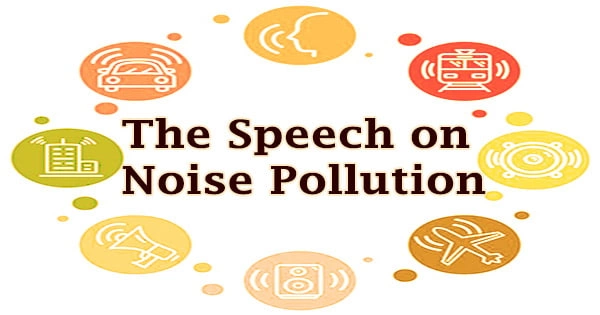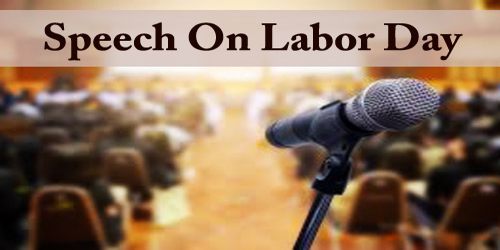A very Good Morning/Afternoon/Evening (Ladies and Gentlemen) to Honorable Principal Sir/Madam, respected teachers, parents, seniors, and my dear friends/students, Warm Greetings to Everyone!
Thank you all for taking out time and being present at this seminar session. Today, I ……(name) stand in front of you all to address a very important topic which is making a lot of news these days; I would like to speech on the topic of “ Noise Pollution.”
Noise pollution, also known as environmental noise or sound pollution, is an undesired sound that is released into the atmosphere with no concern for the consequences. Along with all of the developments that come with modern civilization, pollution has become a major issue for us. The original comes mostly from humans, who are primarily accountable for their actions, whether at home or at work, which results in pollution. Noise pollution is defined as repeated exposure to excessive sound levels that may cause harm to people or other living beings.
Sound levels less than 70 decibels (dB) are not harmful to live beings, according to the World Health Organization (WHO), regardless of how long or regular the exposure is. Continuous noise above 85 dB for more than 8 hours might be dangerous. If you work for 8 hours a day near a major road or highway, you will most likely be subjected to the traffic noise pollution of roughly 85 decibels. Machines, transportation, and dispersion systems are the primary sources of outdoor noise across the world. Noise disintegration or pollution may be caused by poor urban planning, and noise pollution in residential areas can be caused by industrial and residential buildings being built next to each other.
Loud music, transportation (traffic, rail, aircraft, etc.), lawn care maintenance, building, electrical generators, wind turbines, explosions, and people are some of the primary causes of noise in residential neighborhoods. We hear what others are saying because of the sound. A pleasant sound is both appealing and beneficial to our health. Our ears are bothered by the imbalanced sound. It has a number of negative effects on human health. Noise Pollution is created when these disparate noises are combined; sound pollution is never healthy for anyone.
It is tough to escape the cacophony in our current surroundings. A persistent hum or beeping sound might be heard from household electrical appliances. Lack of urban planning, on the whole, promotes exposure to undesired noises. This is why it is critical to comprehend noise pollution in order to effectively combat it. Noise pollution is mostly caused by human activity. Noise pollution is also caused by natural phenomena such as thunder, lightning, and earthquake. Noise pollution is usually only present for a short time. Noise pollution has a significant impact on the health of humans and other living organisms on the planet.
Noise pollution has a negative impact on both health and behavior. Unwanted sound (noise) may be harmful to one’s health. Noise pollution has been linked to a variety of health problems, including cardiovascular problems, hypertension, high-stress levels, tinnitus, hearing loss, sleep difficulties, and other detrimental and bothersome impacts. Numerous studies on noise pollution have concluded that it reduces people’s productivity. It also affects attention capability, and people become weary in a short period of time. Noise pollution has the most pronounced negative influence on a pregnant women.
According to the European Environment Agency, road traffic noise levels exceeding 55 decibels, the threshold at which noise becomes hazardous to human health according to the WHO’s definition, affects an estimated 113 million people across Europe. Noise pollution causes sleep disruption, which impairs an individual’s work performance throughout the day, causes hypertension and cardiovascular illness, which costs the health system more time and money, and has a detrimental impact on children’s school performance. A long period of high loudness sound is more harmful. Similarly, we should limit our usage of noisy appliances such as mixers, washing machines, and vacuum cleaners.
We cannot eliminate the usage of engine vehicles; but, we can reduce their use. The largest cause of outdoor noise pollution is the usage of horns in automobiles for no reason. We should only use the horn when absolutely necessary. Our automobiles should not generate a lot of noise, either. Noise-induced hearing loss and other health problems can be exacerbated by occupational noise. Hearing loss at work is one of the most frequent job-related ailments in the United States and throughout the world. Noise has been found to be a source of psychological stress. It is also true that precision and accuracy are harmed in such a loud environment, resulting in poor job quality. Irritability, anxiousness, and tiredness are all negative psychological responses to noise.
Non-living elements are also harmed by noise. There are several cases of historic structures, as well as freshly constructed buildings, developing cracks as a result of explosive sound. Constant exposure to loud noise may easily damage our eardrums and cause hearing loss, resulting in tinnitus or deafness. It also limits our sensitivity to noises that our ears instinctively take up in order to keep our body’s rhythm in check. Crackers are a significant source of noise pollution during celebrations, parties, and various events. Noisy music, the generator, and some loud devices, such as a vacuum cleaner or a blender, are all sources of noise pollution.
For the sake of our health, we must think about them and put a stop to them. It affects people of all ages, including children, the elderly, and those with cardiac issues. A noise-free environment will be a wonderful setting and atmosphere in which to live for everyone. The public’s understanding of noise management can help to minimize it. Elders in the family should instruct their children to turn down the volume on the radio, television, and gadgets. The use of loudspeakers for commercial, religious, and political activities should be limited in time. This might potentially play a significant role in resolving the issue.
This is all I have to say today.
Hope you all have a great time; Thank you all.
















